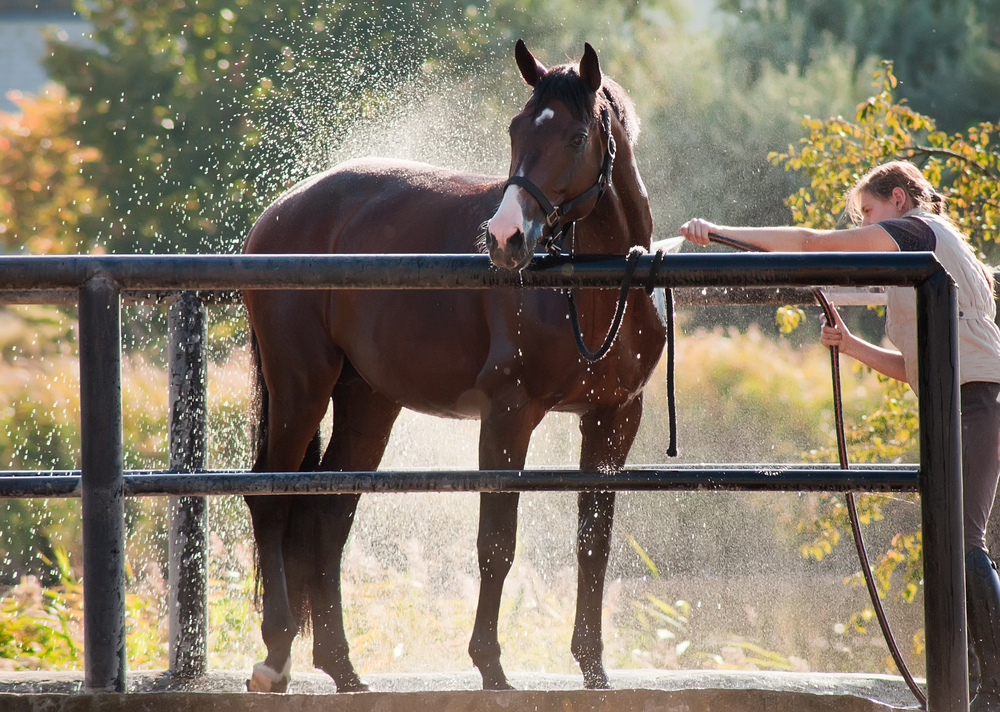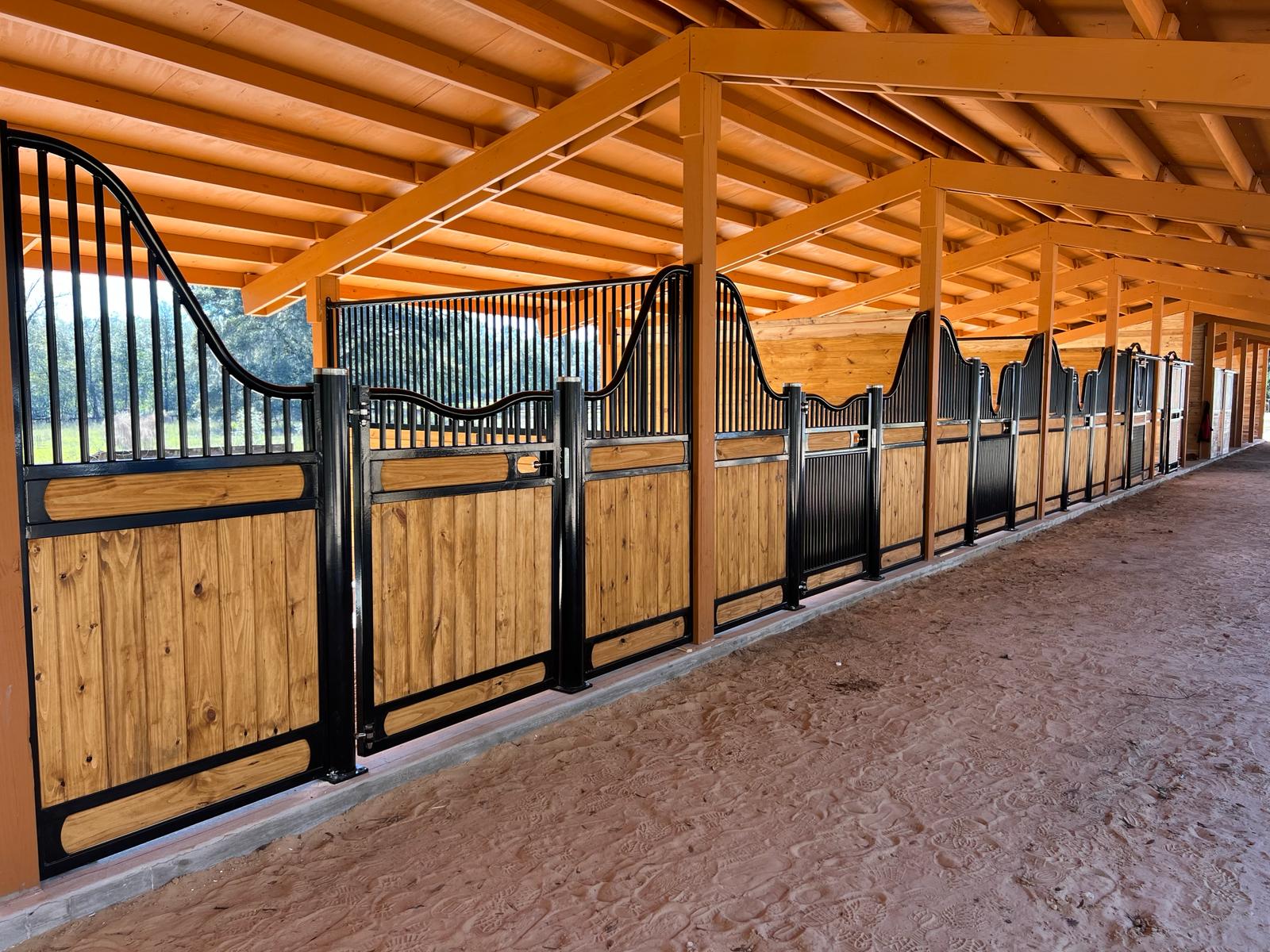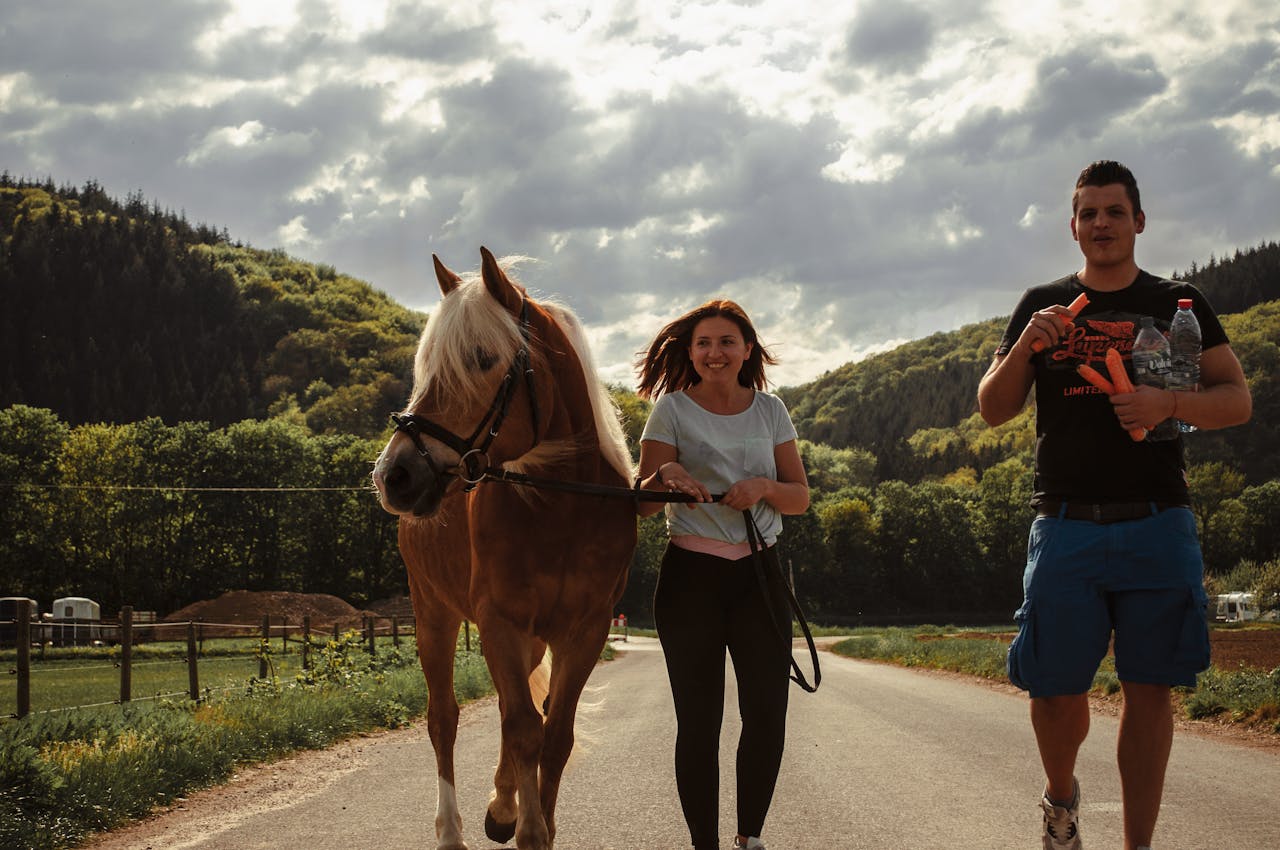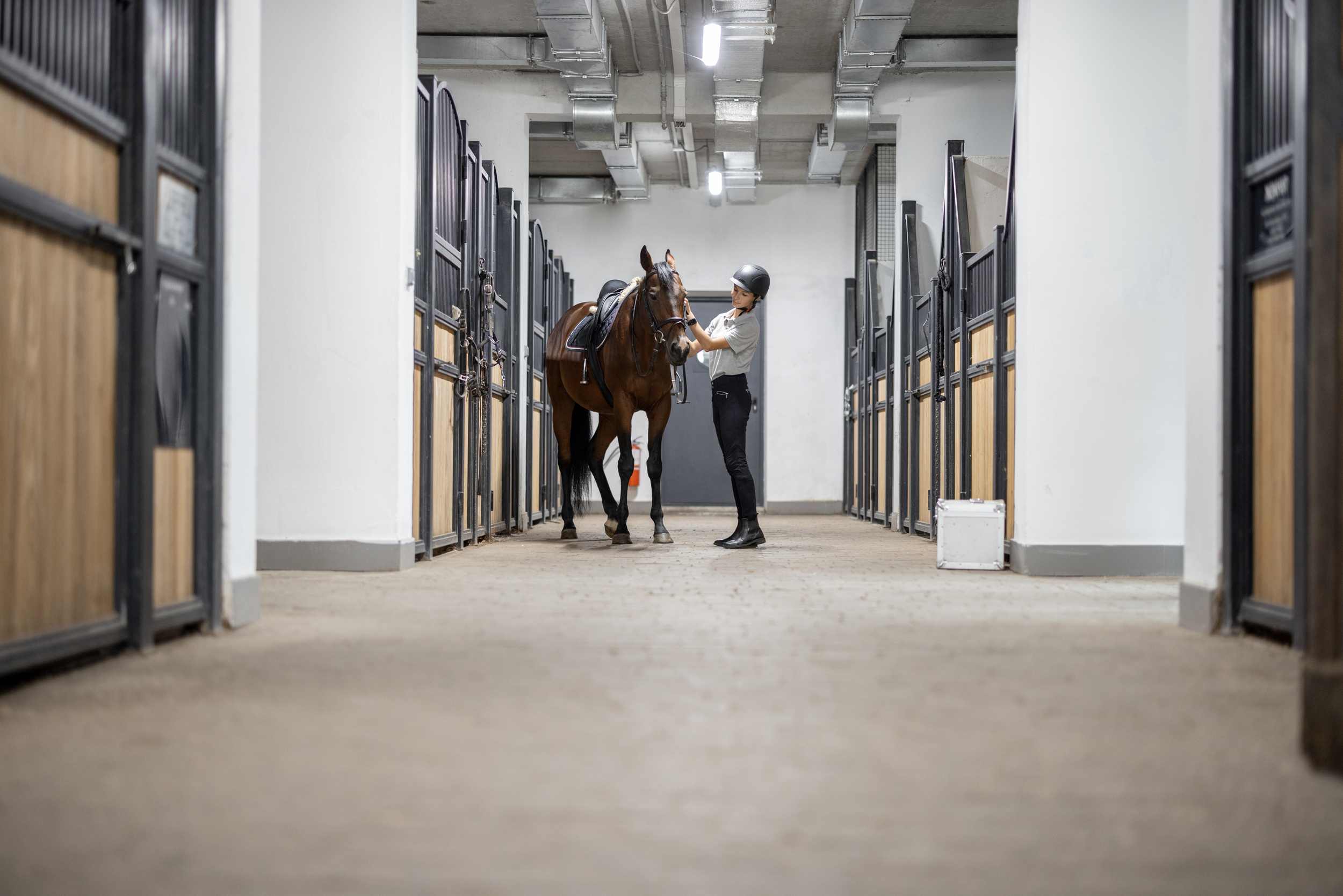This is the first article in a two-part series on avoiding heat stress in horses and overheated horses in the summer. Part two will give you more tips on how to take care of your equine companion.
With temperatures still on the rise, the “dog days of summer” can be detrimental to the health and well-being of your horses. Most of the United States is stuck in the sweltering heat and humidity that July brings. So we need to be constantly monitoring our stable conditions to help avoid equine heat stress this summer.
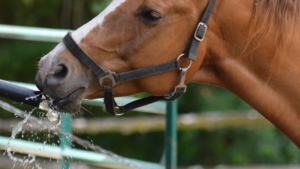
Tips To Prevent Equine Heat Stress
- Shade – sometimes, the simplest solutions are overlooked. When it comes to beating the summer heat, a good handful of shade trees are worth their weight in gold. If your pastures are bare, you should definitely move on to a more elaborate plan. Consider adding a custom building or run-in shed to your pasture. This type of structure will go a long way in protecting your horses from the heat.
- Ventilation – fans are a blessing on hot summer days. A strong breeze will also help reduce the number of flying insects that swarm in summer heat. When using fans in your barn or stables, be sure you angle them so the hot air is being pushed out. Hang them so the horses cannot reach the cords or fan itself.
- Water – water and basic hydration may seem like a no-brainer in summer horse care. But, some may be unaware that even temps just over 70 degrees can double a horse’s water intake. Make sure your horse has access to over 20 gallons of fresh, cool, clean water every day. If your horse doesn’t drink well, you can add water to the grain to make it a slightly soupy offering. Hydration doesn’t end with H2O, however. Salt blocks should always be maintained and other electrolytes can be considered in extreme cases. Call your veterinarian and ask questions if you think your horse is suffering from equine heat stress. And remember, a warm bucket of water is much less appealing than a fresh cool one!
- Cooler Turnout Times – whether you board or own your own land, you should make the moves now and start a slow progression to cooler turn-out times. Your horse will enjoy their pasture grazing much more if they can get out before the sun is beating down on them. Try to avoid sudden changes in routine, though, as this could open the door to colic.
- Slowing Down – if you have to ride on hot days, ride as early in the day as possible. If this is not an option, it may be best to slow down the gears for the days of extreme heat. Your horse will love the break and you’ll rest easier, knowing that you’re doing your part to avoid equine heat stress.
- Keep in Shape – even while slowing down on the extremely hot days, it’s very important not to use heat as an excuse to get out of shape, for you or your horse! It’s harder for an overweight horse to cool down and they expend more energy on simple tasks, which makes them hotter and leads to equine heat stress.
- Gear Up for Summer – summertime provides an opportunity to get store of all the extra riding gear and cold weather wear. Unless advised by an expert, loose the leg boots, trailer blankets and wool. Stock up on lightweight gear that’s breathable and allows for air circulation on warm rides. This will allow your horse to cool quicker and not get as hot.

In addition to these tips for avoiding equine heat stress, keeping a close eye on your team is crucial during times of extreme heat. The AQHA and Dr. Janet Johnston, an Emergency and Critical Care veterinarian at Penn Vet, want to remind us that signs of heat stroke can include:
- An elevated heart rate that does not return to normal in a reasonable period of time
- Excessive sweating OR lack of sweating
- Temperature that persists above 103 F
- Depression, lethargy
- Signs of dehydration: dry mucous membranes, poor capillary refill, and poor skin turgor.
We’ve just gotten started with the first set of 14 tips for avoiding equine heat stress. Part Two will even be more interesting!
Do you have a question or comment about overheated horses or equine heat stress? We’d love to hear from you in the comments below!
Saratoga Stalls is a premium national supplier of horse and barn products. For more information on custom barns or horse stalls please contact Curtis Gardner, CEO, at (800) 918-6765.

